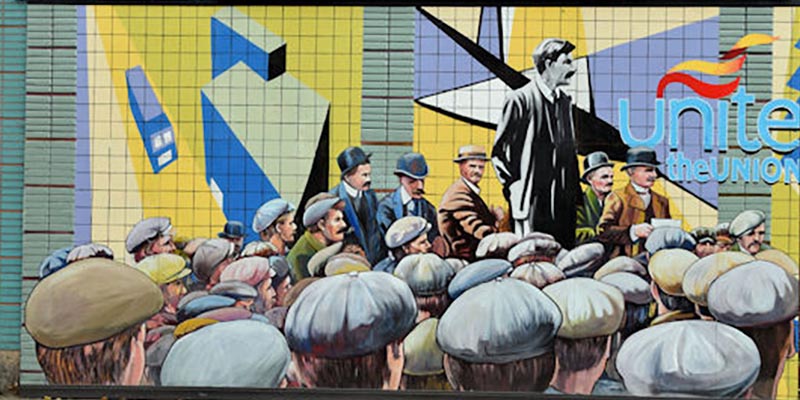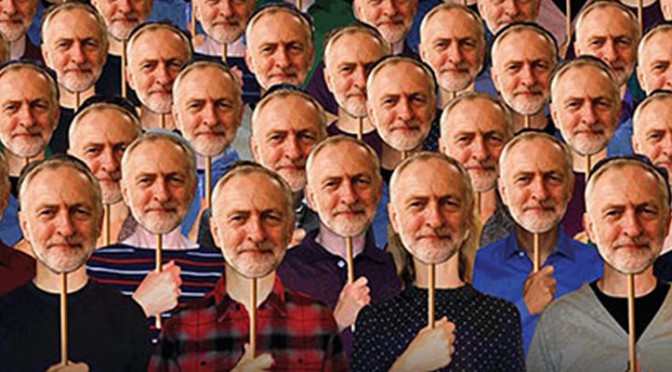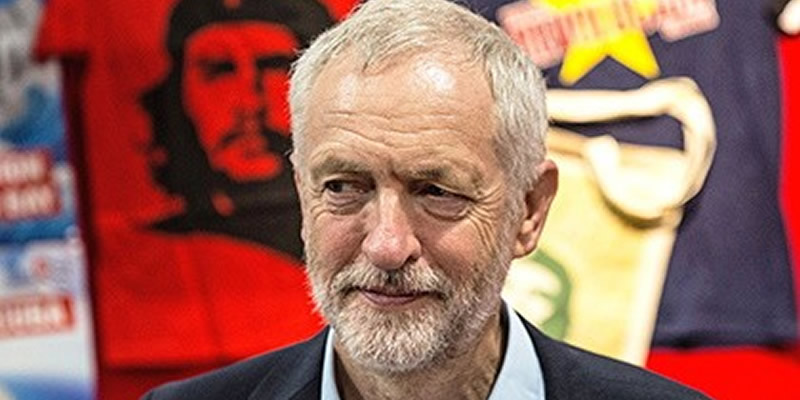Stan Keable reports on debates on the Unite election, the Chatham House left and our criticisms of the LPM fraction
As readers will know, union branch nominations for the post of Unite general secretary closed on June 7, and voting will take place from July 5 to August 23.1
Four candidates – one rightwinger and three on the left – achieved the 174 nominations from more than two regions required to get a place on the ballot paper – that minimum equals 5% of Unite’s 3,474 branches. For a while, only the three left candidates had reached the threshold, but hopes of a left-only contest were dashed when rightwinger Gerard Coyne scraped through with 196 nominations. For the left, this changed the question from ‘which candidate do you prefer’ to ‘which two should stand down’, so as not to repeat the Unison debacle, where Dave Prentis’s continuity candidate, Christina McAnea, held the top post on a minority vote against a divided left.
The number of nominations becomes a secondary question once the threshold has been crossed. Coyne will be backed to the hilt by the press, the BBC and the Labour right. Back in 2017 Len McCluskey seemed to be way in front, with 1,185 branch nominations to Coyne’s mere 187. But Coyne gained 41.5% of the vote and was only narrowly defeated by McCluskey (45.4%) on a 12.2% turnout, although third-placed leftwinger Ian Allinson took 13.1% of the vote, so the total left vote amounted to 58.5%. So this time, if there were a single left candidate, Coyne would have an uphill struggle … but could still win.
The forces that support Coyne have already chosen Howard Beckett as their favourite demon. At the June 12 Labour Left Alliance organising group meeting the Labour Party Marxists successful motion – accepted by the LLA OG with just two votes against – calls on Unite members to vote for Beckett “as the best, or least worst, of the three ‘left’ candidates on offer”. It notes “the targeting of Howard Beckett by the BBC, the Murdoch press and the Labour right, including Tom Watson and Margaret Hodge, and his suspension from Labour Party membership for speaking out against Tory government deportations”.
In the LLA-organised hustings, Beckett pledged “to call out the witch-hunt against the Labour left and to support those who have been unjustly suspended and expelled from the Labour Party”. Good – but don’t hold your breath. “On the negative side,” the motion continues, “we note that he rejects the socialist principle of ‘a worker’s representative on a worker’s wage’ – that socialist trade union officials – and MPs – should live on a skilled worker’s wage … Howard Beckett is a product of the trade union bureaucracy, a well-paid, careerist, left bureaucrat.”
As for the other candidates, former Militant member Steve Turner has made clear his departure from left politics, while Sharon Graham’s key campaign slogan, “to take our union back to the workplace”, is probably code for downgrading Unite’s involvement in internal Labour Party struggles (enough to get her the SWP’s backing – textbook economism).
Speaking of former Militant members, the Socialist Party in England and Wales is giving a master class in tailism, when it comes to the election. SPEW’s preference for both Beckett and Sharon Graham and its gentle criticisms of Turner appear to be governed by diplomacy – by which left bureaucrat members and supporters have been working with. SPEW’s June 9 statement, after nominations closed, calls Coyne “a direct representative of big business and the Starmerites”, and notes Steve Turner’s “compliant approach both industrially and politically, reflected in him clearly not being prepared to challenge Starmer as Labour leader.” Consequently, “… we believe it is Steve who should step down as a candidate in favour of Sharon or Howard to carry the battle against Coyne.”
Daniel Platts
At the June 12 LLA OG meeting, 16 delegates from affiliated local groups and political organisations attended, to decide LLA’s position. Two motions in support of Howard Beckett were on the table. The LLA trade union group motion offered only uncritical support, which was why LPM submitted an alternative motion setting out a principled approach, which I am pleased to say is now LLA policy:
Trade unions limit competition between workers, thus securing a better price for labour-power. They represent a tremendous gain for the working class, drawing millions of workers into collective activity against employers.
Of course, left to itself, trade union consciousness is characterised by sectionalism. At best trade union consciousness attempts to constantly improve the lot of workers within capitalism. At worst trade union consciousness degenerates into business unionism and sacrificing the interests of workers for the sake of capitalist competitiveness and profitability.
We openly seek to make trade unions into schools for communism. We do this by always putting forward the general interest of the working class, by fighting for workers’ unity and by fully involving the rank and file in decision-making.
Bargaining is a specialist activity. Consequently the trade unions need a layer of functionaries. However, due to lack of democratic control and accountability these functionaries have consolidated themselves into a conservative caste.
The trade union bureaucracy is more concerned with amicable deals and preserving union funds than with the class struggle. Operating as an intermediary between labour and capital, it has a real, material interest in the continued existence of the wage system.
Within the trade unions we fight against bureaucracy by demanding:
- Trade unions must be free of any interference or control by the state or employer.
- No trade union official to be paid above the average wage of a worker in that particular union.
- All full-time trade union officials must be elected, accountable and instantly recallable.
- All-embracing workplace committees. Organise all workers, whatever their trade, whether or not they are in trade unions. Workplace committees should fight to exercise control over hiring and firing, production and investment.
- One industry, one union. Industrial unions are rational and enhance the ability of workers to struggle. Given the international nature of the capitalist system and the existence of giant transnational companies, trade unions also need to organise internationally.
Daniel Platts of the steering committee proposed an amendment (which, thankfully was defeated, but gained four votes), replacing our description of the limits of “trade union consciousness”, with Daniel’s view of the limits of trade unions. He evidently overlooked, or did not understand, the well known Marxist formulation in the very next sentence: “We openly seek to make trade unions into schools for communism.” Here is his text:
At best trade unions can illustrate the power of the working class within society, by stopping the means of production against the wishes of the capitalist class. But rarely does this happen on any considerable scale, and usually the best they offer are merely attempts to improve the lot of workers within capitalism.
I can only recommend a visit to marxists.org and reading again – or perhaps for the first time – Lenin’s What is to be done?
Chatham House left
The LLA meeting started with a political opening by Roger Silverman on behalf of the steering committee. Comrade Roger reminded us that the right would “never repeat their mistake” of allowing a left leader of the Labour Party to be elected, and noted “calls for a new party” as a result – but warned of the long list of failed left splits from Labour. However, he spoke of a “huge explosion” of discontent building up around the world: “The counterattack is coming. That will be the basis for a left split.”
In the discussion, I argued against aiming for a left split, saying we need serious Marxist organisation now, to fight inside and outside Labour. Whether or not the left is forced out of the party, the need for a socialist programme and serious organisation stands.
LPM is, of course, an opposition faction within the LLA, whose conferences have twice rejected the aim of replacing capitalism with socialism and the aim of a classless, moneyless, stateless world. So I was truly (and pleasantly) surprised to hear Daniel Platts’s confession on behalf of the LLA SC: “Most of us realised pretty quickly [after the LLA conference] that we had made a massive oversight in not putting ‘socialism’ into the LLA’s aims.” Then Tina Werkmann interjected, quite rightly: “And a membership structure!”
Yes, an individual membership structure – an essential requirement for the effective democratic organisation of socialists – has also been rejected twice. Without either a Marxist political programme or a serious organisation, we believe the LLA will remain part of the failed official Labour left, which it was set up to replace. So we should look for opportunities to draw out and emphasise sharp lines of demarcation between principled positions which consciously uphold the long-term general interests of the working class as a whole, and unprincipled compromises which accommodate to short-term sectional interests – the career interests of the latest official left bureaucrat or MP on offer, for example.
This brings me to the second main item: the – secret – left unity talks between 25 or so groups under the title, ‘Future of the Labour left’, hosted by Don’t Leave, Organise. In respect of this, LPM had submitted a motion titled ‘Accountability’. The motion reaffirmed that, according to the LLA constitution, “the LLA officers and steering committee are accountable to the OG”, and complained that the SC minutes provided to the OG suggest that “full reporting of this activity was not happening”. The OG therefore requires SC representatives attending the talks to “produce a full work report for scrutiny at each meeting of the organising group”.
The two LLA representatives in the talks, at the three meetings which have taken place so far, were Tina Werkmann and Tasib Mughal. While the SC majority were clearly uncomfortable with the Chatham House rule – the ban on reporting – they supported comrade Tina’s view that it was better to have a voice inside, so as to know what was being decided and to influence the discussions, than to be kicked out for disobeying the gagging order. Comrade Tina’s seemingly innocuous amendment, replacing a “full” report by a “verbal or written” one, actually meant ‘verbal only’. She gave the reason for this explicitly: anything written “will end up in the Weekly Worker”, and – she believes – would be met by the LLA’s immediate exclusion from the talks.
For LPM, openness is a principle which the working class needs if it is to become the ruling class. So there should be no place for the Chatham House rule in the workers’ movement.
Criticism
Following the LLA OG meeting, the LPM steering committee has been critical of the position taken by the LPM fraction for not contesting unprincipled elements in the motions and amendments that were voted through.
For example, we should have insisted that the principled LPM motion for critical support for Howard Beckett was a replacement for the motion of uncritical support. The motions were not complementary, so we should have voted against the uncritical motion. The fraction should also have rejected the uncritical sentence praising Howard Beckett, in that he is “by far the best of the three left candidates to be our standard bearer”.
We should also have rejected outright the amendment from Tina Werkmann to LPM’s ‘Accountability’ motion, replacing the requirement for a “full” report by a “verbal or written” report. Finally, as well as requiring LLA SC representatives in the talks to report fully to the OG, the LPM motion should have gone further, and required them to publish a full report of each meeting.
- Official info is available at unitetheunion.org/who-we-are/structure/unite-2021-general-secretary-election; and secure.cesvotes.com/V3-1-0/unitegensec21/en/home.↩︎




